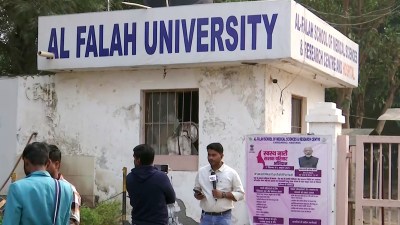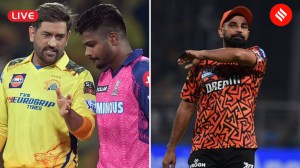Retail FDI: Window isn’t shut, PM tells ASEAN
The window of reforms in India’s retail sector is not shut, affirmed Prime Minister Manmohan Singh at the ASEAN Business Advisory Counc...

The window of reforms in India’s retail sector is not shut, affirmed Prime Minister Manmohan Singh at the ASEAN Business Advisory Council, where he fielded some ‘‘tough questions’’ on the pace, direction and quality of the Indian story.
‘‘There are problems in opening up retail to foreign direct investment. We do recognize immense opportunities. I hope we can come up with a positive outcome in the next five to six months,’’ said Singh.
After pledging to take India and the East Asian partnership to an ‘‘ever-expanding horizon’’, the PM looked an international audience firmly in the eye, admitting to some of the country’s shortcomings while repeatedly pointing to the road ahead. ‘‘I would be the last to deny that everything you see in India is rosy. Old mindsets do persist. The liberalization process is also a struggle for the minds of our people, and I do believe we are succeeding.’’
In response to a query on how politics was stalling business, Singh stressed on India’s democracy, and said, ‘‘I cannot promise you there will be no problems.’’ He did, however, point to the positives. ‘‘See how the West Bengal government, a Communist government, is going out of its way to create world-class facilities to attract foreign investment—in fact, its chief minister was in ASEAN a few weeks ago.’’
The PM also sought to address domestic industry’s concerns about a rapid opening up to the region. In his speech to the Business Council, Singh affirmed that India is committed to bringing down tariff to ASEAN levels. ‘‘We must walk this road together, so that enterprises in our countries find it a beneficial process, not a hurtful one. There may be losers, and there will certainly be gainers, but on the whole, we will obtain a win-win outcome.’’
Stressing the extent of his government’s commitment to this process, Singh sent out a clear signal that ‘‘We are also examining ways to develop regional trading arrangements with our great neighbour China.’’
At the same time, it is learnt that all is not well with the pace of progress on carving out a free trade agreement with ASEAN by January 2007. India’s huge negative list of 1,466 items will require more negotiation, according to sources.
But the tough questions continued to flow on the floor.
Queried on the abysmal, unchanging state of India’s infrastructure, Singh admitted that it’s ‘‘not top-class, but things are changing.’’
The changes in roads, he said, will be visible in five years, as it will in railways, when the rail corridor system comes into play. On airports, he said Delhi and Mumbai’s modernization plans were on the horizon, and that in March 2006, Kolkata and Chennai airports would be thrown open to public-private partnership.
Singh then went on to invite ASEAN entrepreneurs to ‘‘test the waters’’ in India, and said that there’s a unique opportunity to use the surplus savings in the region for the development of India’s infrastructure.
Similarly, when asked about the status of Bangalore, the Prime Minister added Hyderabad, Chennai and Delhi as IT centres, adding that ASEAN strengths in hardware can supplement India’s software skills.
While India and Malaysia are concluding an MoU on mutual recognition of educational qualifications, there is a clear movement towards a comprehensive economic cooperation agreement (CCEA) with Malaysia, India’s largest trading partner in the region.
The Joint Study Group on Indo-Malay economic relations is to be presented to the government, said Secretary East at the MEA Rajiv Sikri. Dato’ Seri Sami, Malaysia’s Minister of Works, called on the Prime M inisterand promised $4 billion in investment in India’s infrastructure projects.
Singh got a warm endorsement from his Malaysian counterpart Abdullah Badawi, who spoke later in the day. ‘‘We believe India is a country to watch. With improved relations with its neighbours as well as the US, India has the potential of being an important partner for the region.’’
Badawi also stressed on the changing face of Asia: ‘‘The emergence of China and India as powerhouses, coupled with demographic changes in Japan, would almost certainly lead to a re-alignment of power arrangements.’’
In the other bilateral, The Prime Minister invited Vietnamese PM Phan Van Khai to visit India next year, and a date will be decided soon.



- 01
- 02
- 03
- 04
- 05



























